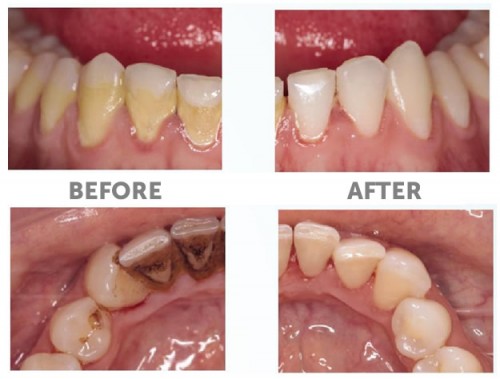If you do not brush your teeth or if you brush them carelessly, plaque can form as quickly as in 2-3 days. Tartar is a mineralised, hard layer of plaque, which consists of substances in the saliva: cariogenic bacteria, desquamated epithelial cells, calcium, phosphorus and food remnants. The tendency to the formation of tartar and the rate of formation differ from person to person and are heavily dependent on the composition of saliva (highly mineralised saliva promotes rapid formation of tartar). Hygienic and dietary habits are also very important: drinking large amounts of coffee, tea, and above all, smoking, significantly accelerate tartar build-up.
It is important to remember that large deposits of tartar can lead to serious problems, such as bad breath, unsightly teeth appearance (yellow or dark colour), gum disease (strong red colour, bleeding and pain), tooth decay and cavities leading to tooth loss.
Therefore, it is highly recommended to schedule a dental check-up at least once a year and have your teeth professionally cleaned if needed.
This procedure involves using ultrasound to remove tartar, sandblasting the teeth to remove plaque and polishing the surface of the teeth plus fluoridation.
You can also consult a specialist for proper oral care and ask a hygienist for help in choosing appropriate toothpaste and toothbrush. Proper hygiene and properly selected accessories significantly reduce tartar deposits.
Dental care


